外研版九年级英语下册课件 Module 2 Unit 1 They don't sit in rows. (共30张PPT,无音频)
文档属性
| 名称 | 外研版九年级英语下册课件 Module 2 Unit 1 They don't sit in rows. (共30张PPT,无音频) | 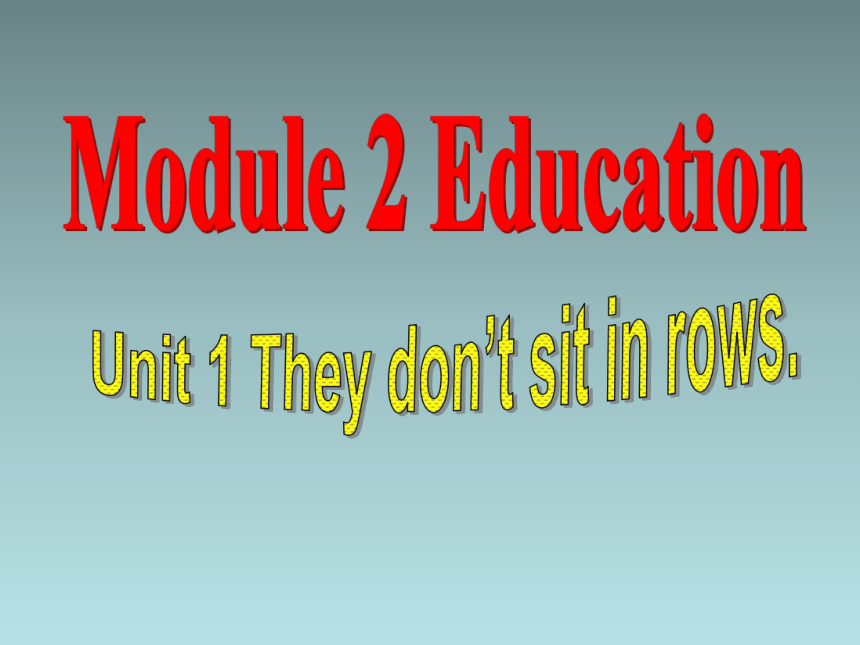 | |
| 格式 | ppt | ||
| 文件大小 | 3.8MB | ||
| 资源类型 | 教案 | ||
| 版本资源 | 外研版 | ||
| 科目 | 英语 | ||
| 更新时间 | 2022-08-16 08:11:47 | ||
图片预览


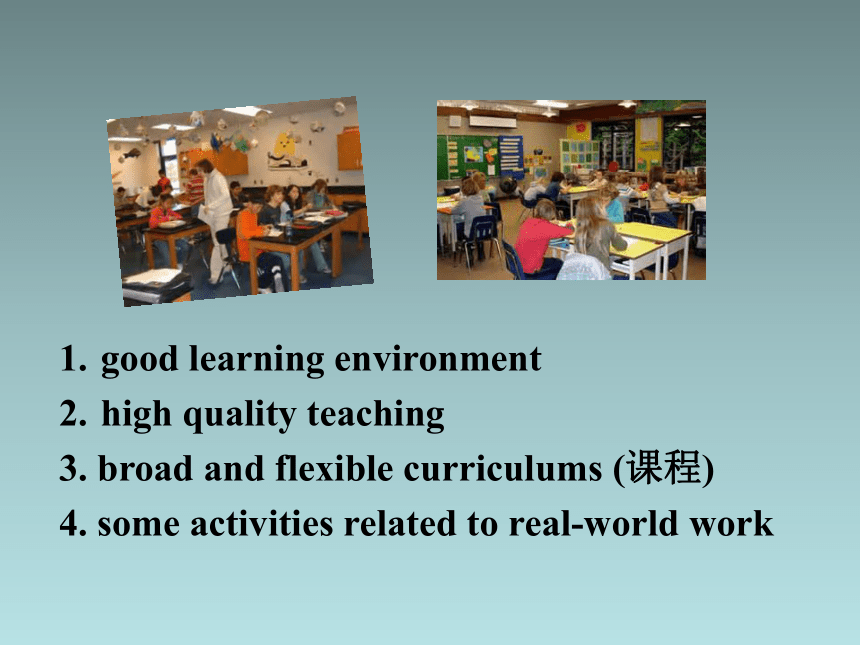
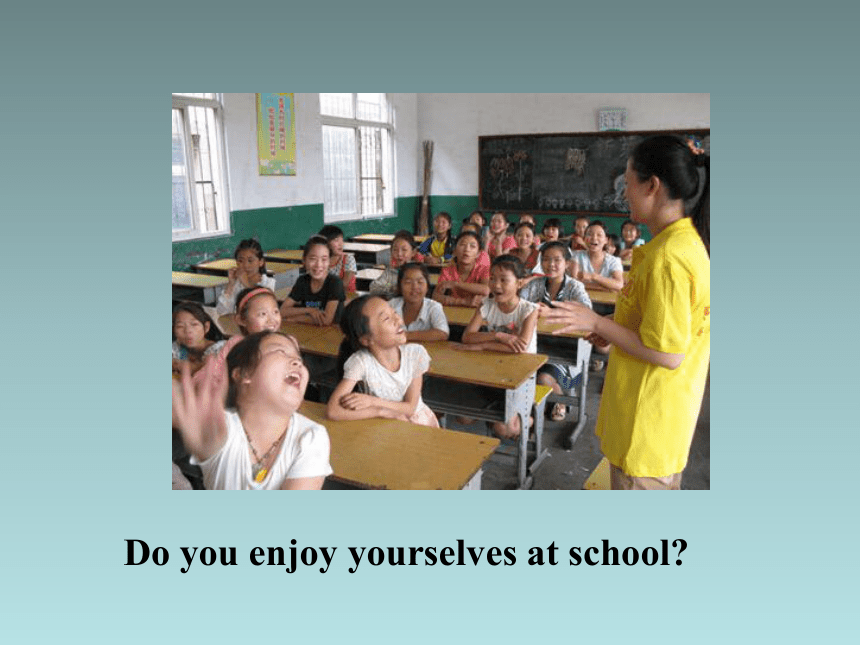
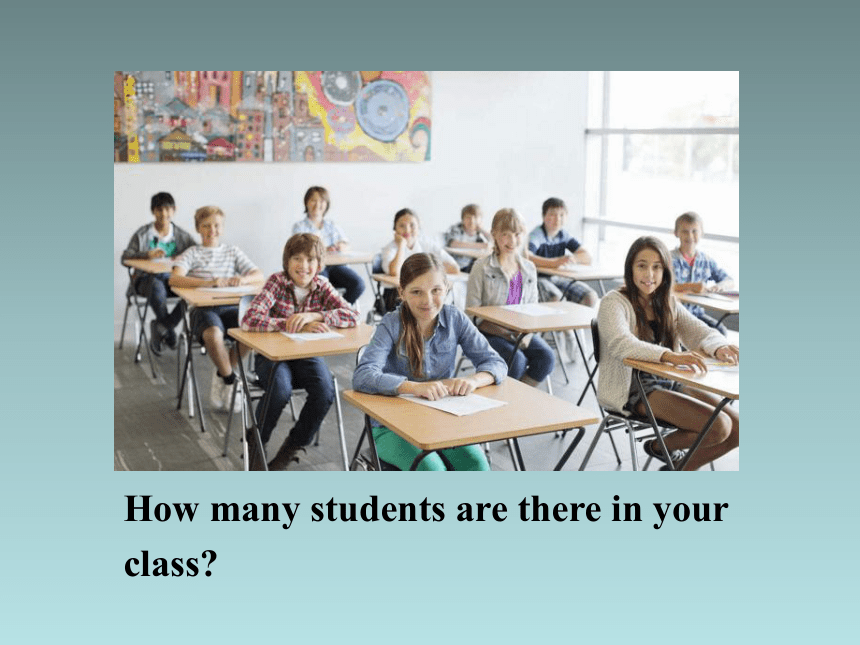
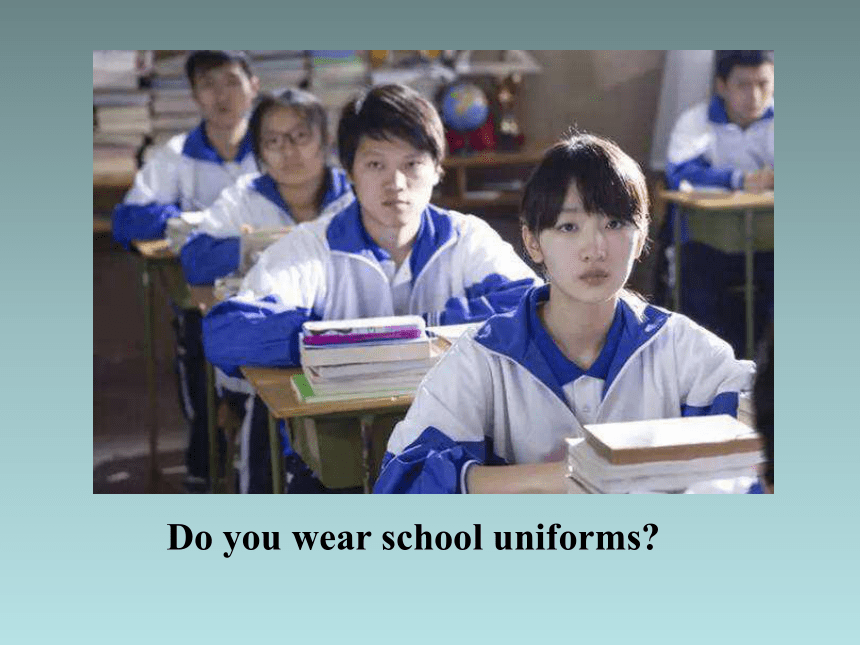
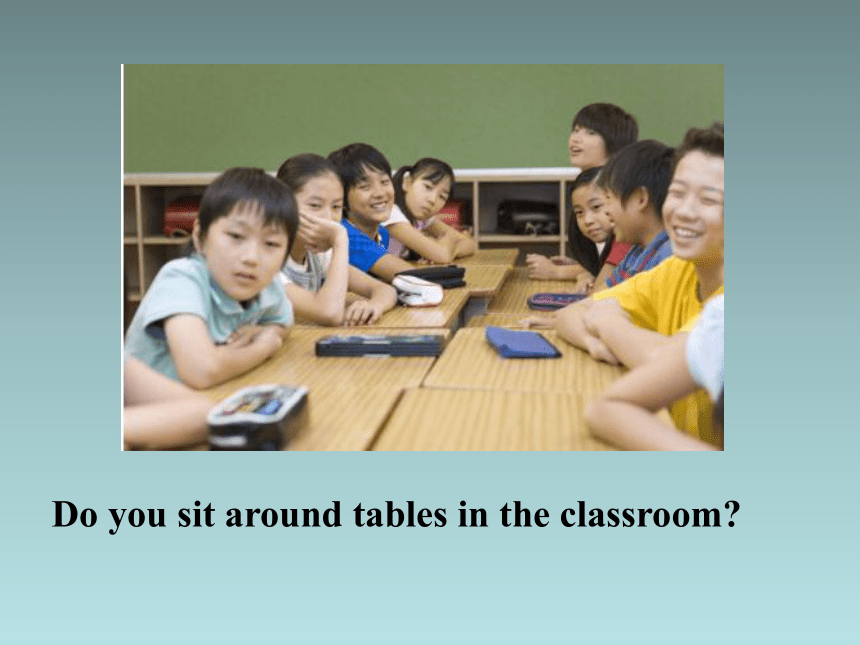
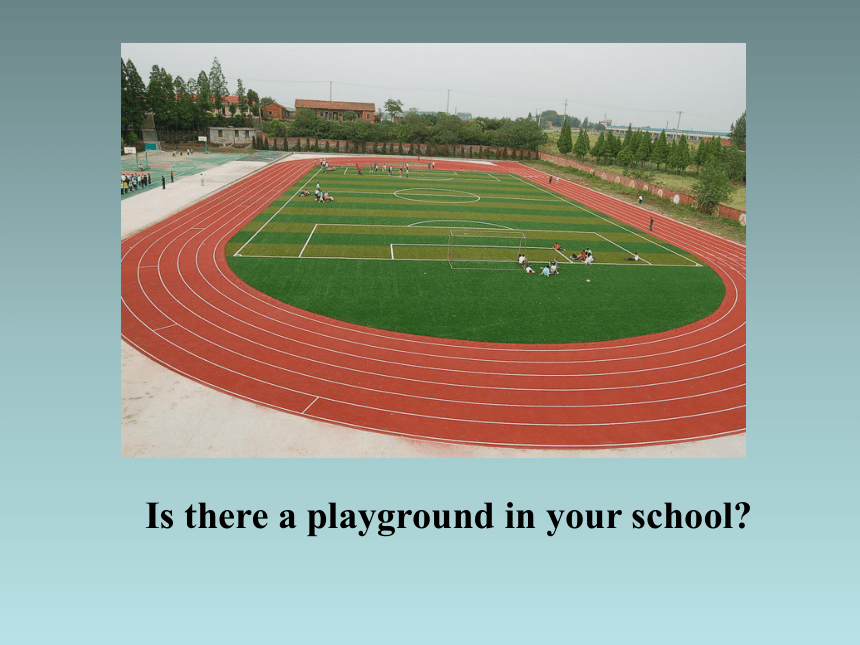
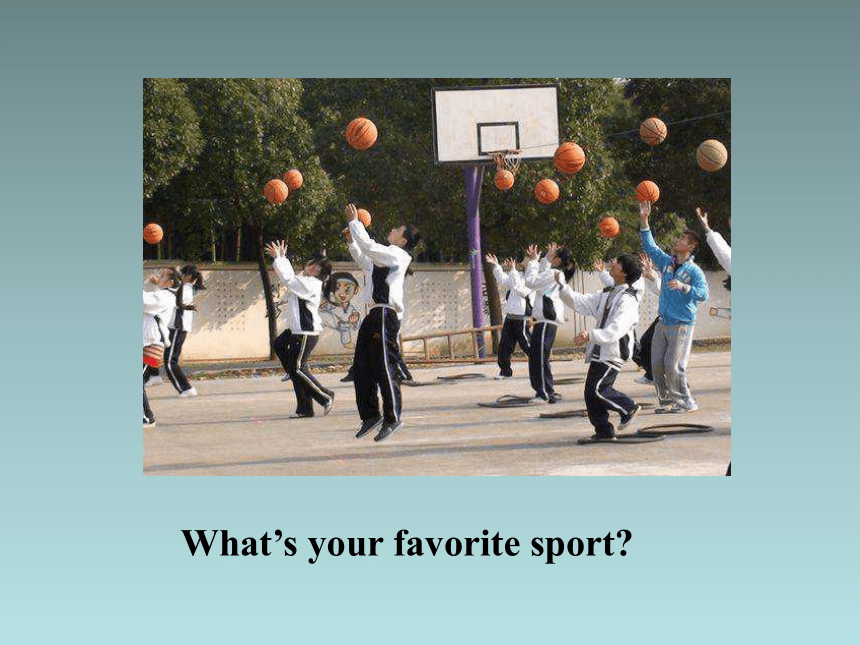
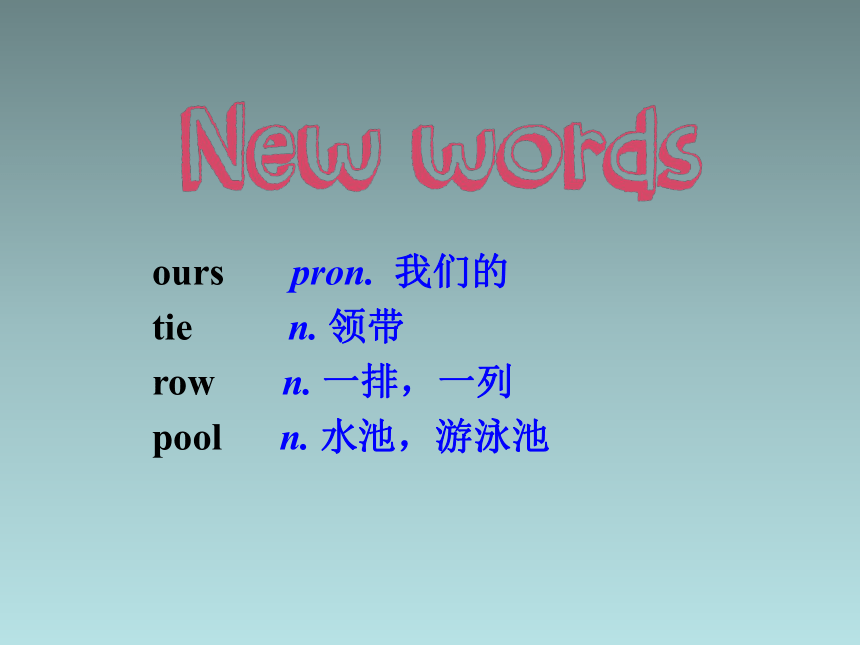
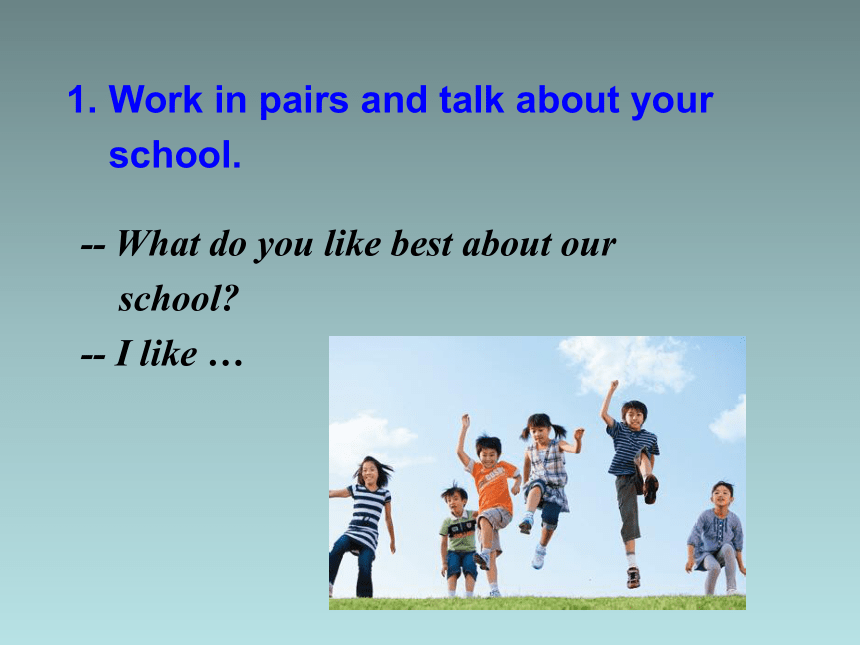
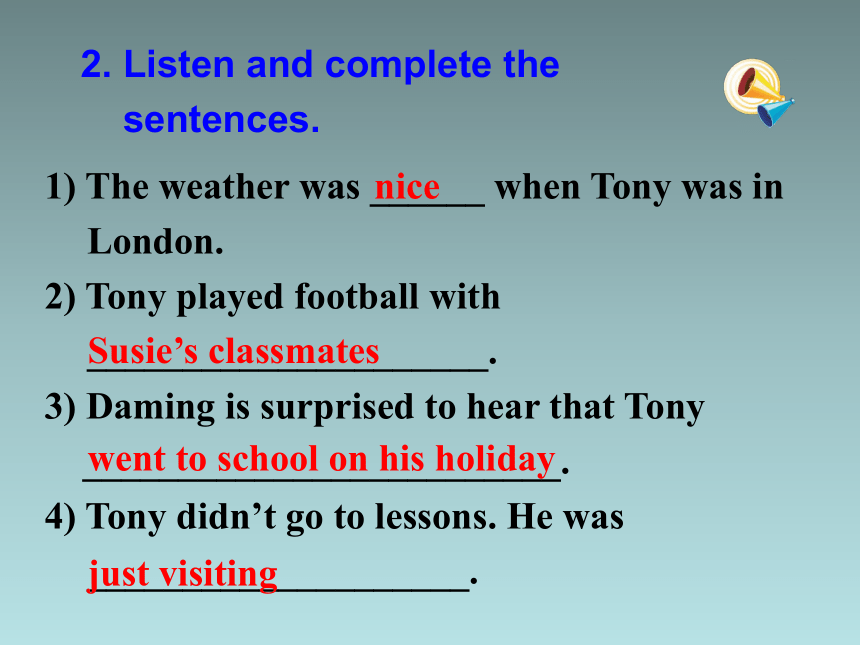
文档简介
(共30张PPT)
People always want to go to good schools, but what makes a school good
good learning environment
high quality teaching
3. broad and flexible curriculums (课程)
4. some activities related to real-world work
Do you enjoy yourselves at school
How many students are there in your class
Do you wear school uniforms
Do you sit around tables in the classroom
Is there a playground in your school
What’s your favorite sport
ours pron. 我们的
tie n. 领带
row n. 一排,一列
pool n. 水池,游泳池
-- What do you like best about our
school
-- I like …
1. Work in pairs and talk about your
school.
1) The weather was ______ when Tony was in London.
2) Tony played football with _____________________.
3) Daming is surprised to hear that Tony
_________________________.
4) Tony didn’t go to lessons. He was ____________________.
nice
went to school on his holiday
just visiting
Susie’s classmates
2. Listen and complete the
sentences.
Tony and his friends are talking about something they are interested in. Listen and read. Finish the following tasks.
1) How many pupils are there in Susie’s school
700 pupils.
2) Is everyone sitting around tables or sitting in rows in England
Sitting around tables.
3. Listen and read.
3) Does every student wear school clothes in England
Yes, they do.
4) What kind of sports do students in England like
They like playing football.
Susie’s school Your school
Number of pupils in the school
Number of pupils in a class
Arrangement of seats in the classroom
Sports areas
about 700
pupils
about 30 pupils
Pupils sit around tables.
Sports grounds.
1. Who did Tony visit in London
Tony visited his friend Susie in London.
2. How did Tony get the photos of
Susie’s school
Tony took the photos of Susie’s school.
4. Read the conversation again and answer the questions.
3. Which class is a bit bigger, Susie’s or Daming’s
Daming’s class is bigger than Susie’s class.
4. What does Betty hope to do one day
Betty hopes to visit Susie’s school one day.
Read and try to recite the conversations in 5-10 minutes.
1. Role play the conversation in groups;
2. Role play the conversation in front of
the class
Let’s see which group does the best.
Complete Your school column in Activity 3.
Susie’s school Your school
Number of pupils in the school
Number of pupils in a class
Arrangement of seats in the classroom
Sports areas
700
30
sit around tables
sports ground
what both schools have
what one school has but the other does not
Now work in pairs and compare your school with Susie's school. Say:
Pupils in England do not sit in (1) ______ in the classroom. They sit around tables. Everyone (2) _______ a jacket and (3) _____.
enjoy pool row tie wear
tie
rows
wears
Complete the passage with the correct form of the words in the box.
Most schools have sports grounds, and English children (4) _______ playing football, just as pupils in China do. Some English schools have swimming (5) ______, but not all of them do.
enjoy
pools
enjoy pool row tie wear
英语句子一般由多个单词构成,这些单词的重读一般遵循以下规律:名词、形容词、数词、动词、副词、代词和表达强烈思想感情的感叹词需要重读;人称代词、连词、冠词、介词、以及少数系动词和助动词等主要起语法作用的单词一般不重读(当然有少数例外)。
Betty: Hey, Tony! Did you enjoy yourself in London
Tony: Yes! I went to see my friend Susie. And I visited her school.
Betty: What are English schools like
Tony: Here are a few photos. I took them
myself.
6. Read and predict which words the
speaker is likely to stress.
Now listen and check.
7. Work in pairs. Read the conversation
in Activity 6 aloud.
Betty: Hey, Tony! Did you enjoy yourself in
London
Tony: Yes! I went to see my friend Susie.
And I visited her school.
Betty: What are English schools like
Tony: Here are a few photos. I took them
myself.
Did you enjoy yourself ---- used to ask if a person enjoyed an activity.
Let’s have a look. ---used to make a request to see something.
It looks really great. ---used to say that something is impressive.
1. To understand the conversation with regard to “school”
2. To compare two schools, using both; one…but the other…
3. To learn to stress the words
4. To learn and review some words and expressions about education.
5. To learn some expressions about pronouns.
本模块的话题是教育。本节课的文本材料中展示了西方国家的学校、班级、座位等情况,学生比较感兴趣,有话可说。
通过学习中西方教育的不同,如学校规模、班级人数、位置安排,学生能够有直观形象的概念,拓展了视野。
People always want to go to good schools, but what makes a school good
good learning environment
high quality teaching
3. broad and flexible curriculums (课程)
4. some activities related to real-world work
Do you enjoy yourselves at school
How many students are there in your class
Do you wear school uniforms
Do you sit around tables in the classroom
Is there a playground in your school
What’s your favorite sport
ours pron. 我们的
tie n. 领带
row n. 一排,一列
pool n. 水池,游泳池
-- What do you like best about our
school
-- I like …
1. Work in pairs and talk about your
school.
1) The weather was ______ when Tony was in London.
2) Tony played football with _____________________.
3) Daming is surprised to hear that Tony
_________________________.
4) Tony didn’t go to lessons. He was ____________________.
nice
went to school on his holiday
just visiting
Susie’s classmates
2. Listen and complete the
sentences.
Tony and his friends are talking about something they are interested in. Listen and read. Finish the following tasks.
1) How many pupils are there in Susie’s school
700 pupils.
2) Is everyone sitting around tables or sitting in rows in England
Sitting around tables.
3. Listen and read.
3) Does every student wear school clothes in England
Yes, they do.
4) What kind of sports do students in England like
They like playing football.
Susie’s school Your school
Number of pupils in the school
Number of pupils in a class
Arrangement of seats in the classroom
Sports areas
about 700
pupils
about 30 pupils
Pupils sit around tables.
Sports grounds.
1. Who did Tony visit in London
Tony visited his friend Susie in London.
2. How did Tony get the photos of
Susie’s school
Tony took the photos of Susie’s school.
4. Read the conversation again and answer the questions.
3. Which class is a bit bigger, Susie’s or Daming’s
Daming’s class is bigger than Susie’s class.
4. What does Betty hope to do one day
Betty hopes to visit Susie’s school one day.
Read and try to recite the conversations in 5-10 minutes.
1. Role play the conversation in groups;
2. Role play the conversation in front of
the class
Let’s see which group does the best.
Complete Your school column in Activity 3.
Susie’s school Your school
Number of pupils in the school
Number of pupils in a class
Arrangement of seats in the classroom
Sports areas
700
30
sit around tables
sports ground
what both schools have
what one school has but the other does not
Now work in pairs and compare your school with Susie's school. Say:
Pupils in England do not sit in (1) ______ in the classroom. They sit around tables. Everyone (2) _______ a jacket and (3) _____.
enjoy pool row tie wear
tie
rows
wears
Complete the passage with the correct form of the words in the box.
Most schools have sports grounds, and English children (4) _______ playing football, just as pupils in China do. Some English schools have swimming (5) ______, but not all of them do.
enjoy
pools
enjoy pool row tie wear
英语句子一般由多个单词构成,这些单词的重读一般遵循以下规律:名词、形容词、数词、动词、副词、代词和表达强烈思想感情的感叹词需要重读;人称代词、连词、冠词、介词、以及少数系动词和助动词等主要起语法作用的单词一般不重读(当然有少数例外)。
Betty: Hey, Tony! Did you enjoy yourself in London
Tony: Yes! I went to see my friend Susie. And I visited her school.
Betty: What are English schools like
Tony: Here are a few photos. I took them
myself.
6. Read and predict which words the
speaker is likely to stress.
Now listen and check.
7. Work in pairs. Read the conversation
in Activity 6 aloud.
Betty: Hey, Tony! Did you enjoy yourself in
London
Tony: Yes! I went to see my friend Susie.
And I visited her school.
Betty: What are English schools like
Tony: Here are a few photos. I took them
myself.
Did you enjoy yourself ---- used to ask if a person enjoyed an activity.
Let’s have a look. ---used to make a request to see something.
It looks really great. ---used to say that something is impressive.
1. To understand the conversation with regard to “school”
2. To compare two schools, using both; one…but the other…
3. To learn to stress the words
4. To learn and review some words and expressions about education.
5. To learn some expressions about pronouns.
本模块的话题是教育。本节课的文本材料中展示了西方国家的学校、班级、座位等情况,学生比较感兴趣,有话可说。
通过学习中西方教育的不同,如学校规模、班级人数、位置安排,学生能够有直观形象的概念,拓展了视野。
同课章节目录
- Module 1 Travel
- Unit 1 We toured the city by bus and by taxi
- Unit 2 It's a long story.
- Unit 3 Language in use
- Module 2 Education
- Unit 1 They don't sit in rows.
- Unit 2 What do I like best about school?
- Unit 3 Language in use
- Module 3 Life now and then
- Unit 1 They sometimes work harder.
- Unit 2 I think life is better today.
- Unit 3 Language in use.
- Module 4 Rules and suggestions
- Unit 1 You must be careful of falling stones.
- Unit 2 we must keep the camp clean.
- Unit 3 Language in use.
- Revison A
- Module 5 Look after yourself
- Unit 1 We'd better get you to hospital.
- Unit 2 Get off the sofa!
- Unit 3 Language in use.
- Module 6 Eating togethe
- Unit 1 When is the school-leavers' party?
- Unit 2 Knives and forks are used for most Western
- Unit 3 Language in use
- Module 7 English for you and me
- Unit 1 Have you ever been to an English corner?
- Unit 2 We all own English.
- Unit 3 Language in use
- Module 8 My future life
- Unit 1 Here's to our friendship and the future
- Unit 2 I know that you will be better at maths.
- Unit 3 Language in use
- Revison B
